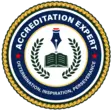
Apply for K-12 Accreditation with MSA-CESS
The Middle States Association Commissions on Elementary and Secondary Schools (MSA-CESS) provides accreditation for various educational institutions. This includes public and private K-12 schools, charter schools, parochial or religious schools, international schools, distance education and online schools, as well as career and technical schools. Accreditation serves as a quality mark, helping schools enhance their educational programs and ensuring adherence to industry standards.
The Process to Apply for MSA-CESS Accreditation for a K-12 School
Eligibility and Readiness
Before seeking accreditation, a school must evaluate whether it meets the fundamental eligibility criteria established by MSA-CESS. Schools must have been operational for at least two years prior to applying. They should be legally recognized educational institutions with a solid financial foundation and clearly defined governance and leadership structures. Institutions must also dedicate themselves to continuous improvement, ensuring that their students receive a quality education that aligns with MSA-CESS standards.
Submitting an Application
Once a school determines its eligibility, it must submit an application to MSA-CESS. This includes completing necessary paperwork, providing documentation of the school’s operational history, and paying the initial application fee. The application process requires institutions to align their educational framework with the MSA-CESS standards, which encompass governance, student learning outcomes, faculty qualifications, and student services. Schools must also demonstrate their capacity to adhere to continuous improvement measures.

Conducting a Self-Study
A key component of the accreditation process is the self-study. During this phase, the school conducts an internal evaluation to assess how effectively it meets MSA-CESS standards. This process requires input from stakeholders, including teachers, parents, administrators, and students. Schools examine their strengths and weaknesses and set improvement goals based on accreditation criteria. The self-study offers institutions a chance to refine their educational programs and operational strategies to ensure they meet high academic standards.
Peer Review and Site Visit
After completing the self-study, MSA-CESS assigns a team of peer reviewers to evaluate the institution. These experts visit the school in person to assess the learning environment, review policies and procedures, and ensure compliance with MSA standards. The site visit allows accreditation teams to verify the information presented in the self-study and provide recommendations for further improvement. Schools must be well-prepared to demonstrate their operational effectiveness and commitment to academic excellence.
Accreditation Decision
After the peer review and site visit, the accreditation review team submits a report to MSA-CESS. This report highlights the strengths of the school and identifies areas for improvement. Based on these findings, the Middle States Commission makes a final decision regarding accreditation. If approved, the school receives accreditation status, which typically lasts for seven years. Schools must maintain compliance with MSA-CESS guidelines to keep their accreditation status.
Maintaining Accreditation
Accreditation is not a one-time event; it is an ongoing commitment to educational excellence. Schools must engage in continuous improvement efforts, including staff professional development, curriculum updates, and tracking student performance. Accredited schools are required to submit regular progress reports and undergo periodic reviews to ensure they continue to meet MSA-CESS standards. Schools that fail to comply with accreditation requirements risk losing their status.

Benefits of MSA-CESS Accreditation for K-12 Schools
MSA-CESS accreditation offers numerous benefits for K-12 schools. It provides legitimacy and global recognition, making it easier for students’ credits to transfer between institutions. Accreditation assures parents and stakeholders that the school upholds high academic and operational standards. Additionally, accredited schools gain access to funding opportunities, grants, and increased student enrollment. Accreditation also makes transitions smoother for students who wish to attend higher education institutions or transfer to other accredited schools.
Schools that obtain accreditation through MSA-CESS boost their reputation and show their commitment to providing a high-quality education. Accredited institutions may also find it easier to attract highly qualified educators and strengthen community partnerships.
Key Accreditation Standards Schools Must Meet
To obtain MSA-CESS accreditation, schools must meet essential standards that cover several vital areas of operation. Governance and leadership are pivotal in ensuring institutional success, necessitating schools to establish a well-defined leadership structure and mission. Faculty qualifications and professional development are equally important, as accredited schools need to employ educators with suitable credentials and offer continuous training.
The curriculum and student learning environment must align with MSA-CESS expectations, ensuring a well-rounded education that prepares students for future success. Schools should implement assessment and continuous improvement processes, regularly reviewing student performance and making necessary adjustments. Furthermore, institutions must demonstrate financial sustainability by providing evidence of their ability to effectively support educational programs.
Common Challenges in the Accreditation Process
While accreditation offers numerous benefits, schools often face challenges during the application and evaluation process. Understanding the accreditation requirements and gathering the necessary documentation can be time-consuming. Schools must ensure their policies align with accreditation standards and that faculty members are adequately trained. Preparing for the peer review and site visit requires thorough planning to ensure compliance with MSA-CESS guidelines.
Another common challenge is maintaining accreditation after approval. Schools must continually strive to enhance their educational programs and meet evolving standards. Institutions that do not submit required reports or show ongoing progress may encounter difficulties in retaining their accreditation status.
How Long Does MSA-CESS Accreditation Take and What Are the Costs?
The timeline for MSA-CESS accreditation varies based on the school’s readiness and capacity to fulfill accreditation requirements. On average, the process typically takes between 18 months to two years. Schools need to invest adequate time to carry out a comprehensive self-study, make essential improvements, and prepare for the site visit.
Accreditation fees differ based on the size and scope of the institution. Schools should allocate funds for application fees, site visit expenses, and ongoing membership fees related to maintaining accreditation. Although the financial commitment may be substantial, the long-term advantages of accreditation surpass the initial investment.

Final Considerations for Virginia K-12 Schools
For schools in Virginia, it is essential to recognize that MSA-CESS accreditation does not substitute for state approval requirements. Accreditation is voluntary and does not automatically confer approval from the Virginia Department of Education. Schools must check if they need to adhere to Virginia Council for Private Education (VCPE) requirements to gain state-level recognition. While MSA-CESS accreditation boosts credibility, institutions must still comply with all relevant state regulations to operate legally.
Conclusion
Applying for MSA-CESS accreditation for a K-12 school is a crucial step toward achieving educational excellence. Schools that seek accreditation showcase their dedication to continuous improvement, student success, and high academic standards. However, accreditation is not a one-time process; schools must uphold compliance with changing educational requirements and demonstrate consistent progress.
While accreditation offers global recognition, schools must also consider state-specific requirements that affect their operational capabilities. Institutions should consult experts in accreditation and compliance to simplify the process and secure long-term success.
If you require assistance navigating the MSA-CESS accreditation process and meeting state-specific requirements, expert consultation services are available to help your institution achieve and maintain accreditation. Contact us today to discover how accreditation can benefit your school and enhance educational outcomes.
📞 Contact us at Info@accreditationXpert.com or visit contact-us page to learn more.




